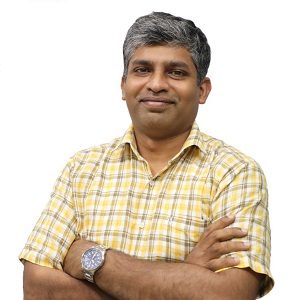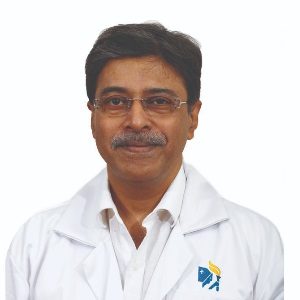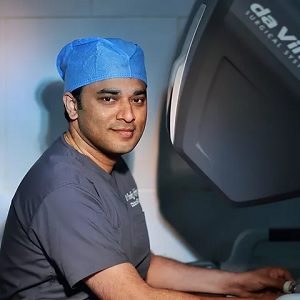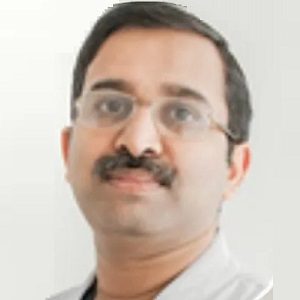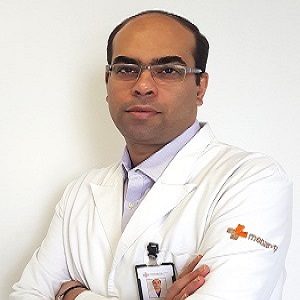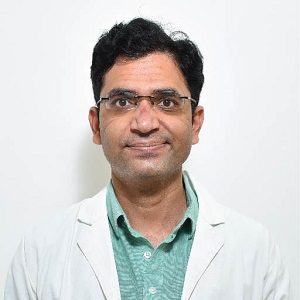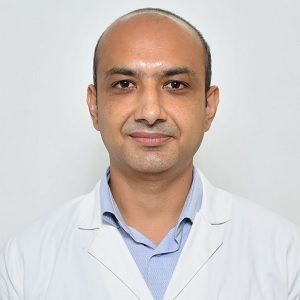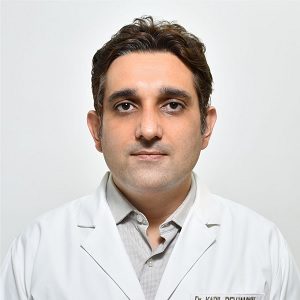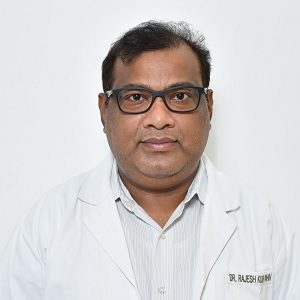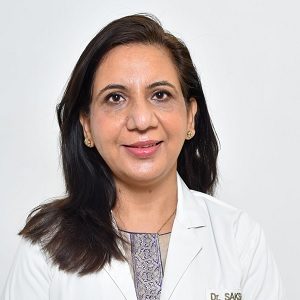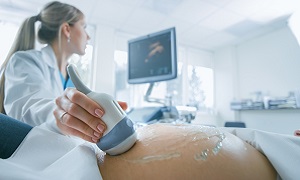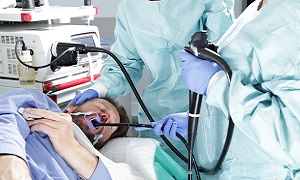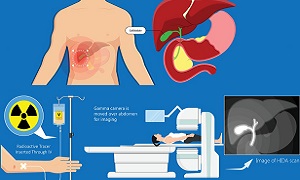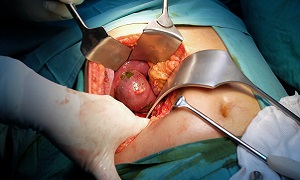Best Doctors in India for Gallstones Treatment
- Liver Transplant Surgeon and HPB Surgeon, Chennai, India
- Over 15 years’ experience
Profile Highlights:
- Dr. Selvakumar Naganathan is one of the best liver transplant surgeons in India with nearly 15 years of experience.
- He has carried out more than 2000 procedures, including 300 donor & 500 recipient hepatectomies, cadaver transplantations, retrieval of cadaver livers, and live donor liver transplants.
- He also established many liver transplantation centers across India & other countries.
- General Surgeon and Surgical Gastroenterologist, Chennai, India
- Over 27 years’ experience
Profile Highlights:
- Dr. Raghunath K J is a well-known name in the field of general surgery with an experience of more than 27 years.
- He went under training in advanced Laparoscopic surgery from Canada and France.
- Dr. Raghunath pioneers many prestigious projects in the UK.
- Dr. Raghunath has a specialized interest in Gall Bladder Stone treatment, Hernia, GI Cancer Surgery, Laparoscopic Sleeve Resection, Endoscopic Surgery, etc.
- Colorectal Surgeon and Robotic Surgeon, Chennai, India
- Over 26 years’ experience
Profile Highlights:
- Dr. Venkatesh Munikrishnan is one of the best Gastroenterologists and Colorectal Surgeons in Chennai, having 21 years of experience in managing disorders that need surgical treatment.
- Dr. Munikrishnan specializes in surgical oncology, endoscopy, Gastritis Treatment, etc.
- He is also active in research; one of his research on CT Colonography fetched a grant from Bracco, Milan, Italy.
- GI Surgeon and Liver Transplant Surgeon, Gurugram, India
- Over 20 years’ experience
Profile Highlights:
- Dr. Amit Nath Rastogi is a pioneer in the field of liver transplant surgery. He completed his fellowship in liver transplant surgery at Sir Gangaram hospital while being a part of the largest liver transplant program in the country.
- Furthermore, he received his training in robotic liver surgery from IRCAD -Strasbourg, France, and advanced robotic HPB training from Grosseto.
- Liver Transplant Surgeon, Gurugram, India
- Over 10 years’ experience
Profile Highlights:
- Dr. Prashant Vilas Bhangui is one of the highly trained liver transplant specialists who received his training in Surgical Gastroenterology and Liver Transplantation.
- He also holds a European Inter-University Diploma in Hepato-Biliary-Pancreatic Cancers.
- Dr. Prashant is further interested to work in certain fields which include hepatocellular carcinoma, colorectal liver metastases, and living donor liver transplantation. Besides this, he has also published several journals on these subjects.
- Gastroenterologist, Gurugram, India
- Over 7 years’ experience
Profile Highlights:
- Dr. Abhinandan Mishra is one of the young Gastroenterology doctors in Gurugram who is particularly interested in inflammatory bowel disease treatment.
- Dr. Abhinandan Mishra offers Endoscopic Retrograde Cholangiopancreatography, Ascites tap, Endoscopy, Peroral Endoscopic Myotomy, Capsule Endoscopy, Esophageal Manometry, Magnetic Resonance Cholangiopancreatography, etc.
- Gastroenterologist, Gurugram, India
- Over 18 years’ experience
Profile Highlights:
- Dr. Atul Sharma is a renowned Gastroenterology practitioner in Gurugram and is particularly interested in Third Space Endoscopy and Per Oral Endoscopic Myotomy (POEM).
- He presented several papers on Manometry, Luminal gastroenterology, and interventional Gastroenterology during training in Advanced Interventional GI Endoscopy.
- Gastroenterologist, Gurugram, India
- Over 15 years’ experience
Profile Highlights:
- Dr. Kapil Jamwal is a renowned GI practitioner in Gurugram with an extensive experience in digestive and liver disease.
- The specialist offers treatment for Hepatitis B, Jaundice, Hepatitis C, Inflammatory Bowel Syndrome, Acute Pancreatitis, Liver Diseases, and Irritable Bowel Syndrome.
- Gastroenterologist, Gurugram, India
- Over 18 years’ experience
Profile Highlights:
- Dr. Rajesh Padhan is a renowned Gastroenterologist in Gurugram with an extensive experience of more than 18 years in the field.
- He is skilled in carrying out various endoscopy procedures such as Colonoscopy, Endoscopic retrograde cholangiopancreatography, Endoscopic ultrasound, upper GI endoscopy, etc.
- Gastroenterologist, Hepatologist, Gurugram, India
- Over 25 years’ experience
Profile Highlights:
- Dr. Sakshi Karkra is one of the best Pediatric gastroenterologists in Gurugram.
- She has special interest/ expertise in Colonoscopy, Upper GI Endoscopy, Capsule endoscopy, Enteroscopy, Endoscopic variceal ligation, Foreign body removal, Stricture & achalasia dilatation, Polypectomy, Anal manometry, Liver Biopsy, and Colonic manometry.
Best Hospitals India for Gallstones Treatment
Gallstones
Gallstones are collections of hardened deposits of digestive fluid in the gallbladder. The gallbladder is a pear-shaped, small organ situated on the right side of the abdomen beneath the liver.
The digestive fluid called bile is present in the gallbladder. The gallbladder holds this fluid that is released into the small intestine of your body. The size of the gallstones may range from a sand grain to a golf ball. The number of gallstones formation may vary from one to many at a time.
Types of Gallstones
Gallstones are of two types:
- Pigment gallstones- They form when your bile contains bilirubin in much amount. They may be dark brown or black in color.
- Cholesterol gallstones- It is the most common type of gallstone that appears yellow in color. They mainly comprise the undissolved cholesterol but may also contain many other components.
Causes of Gallstones
The reasons for causing gallstones may vary:
- Too much bilirubin in bile- When your body breaks down RBCs, it produces a chemical called bilirubin. Under certain conditions, your liver produces too much bilirubin. These conditions may be biliary tract infections, liver cirrhosis, and certain blood disorders. The gallstone formation is largely a result of excess bilirubin formation.
- Too much cholesterol in bile- There are enough chemicals in your bile to dissolve the cholesterol that your liver normally excretes. When the liver excretes more cholesterol than what your bile can dissolve, the excess cholesterol turns into crystals and then stones.
- Emptying of gall bladder- When the gall bladder is not completely empty, the bile becomes concentrated that contributes to the formation of gallstones.
Symptoms of Gallstones
Initially, there are no signs and symptoms of gallstones. If it lodges in a duct causing the blockage, the resulting symptoms may include:
- Sudden pain in the centre of the abdomen below the breastbone
- Pain in the right shoulder
- Intensifying pain in the upper right region of your abdomen.
- Nausea and vomiting
- Back pain between the two shoulders
The pain because of the gall stones may last from few minutes to few hours.
Diagnosis of Gallstones
Tests for the diagnosis of gall stones include:
Abdominal Ultrasound (AUS)
Abdominal Ultrasound (AUS) is one of the most commonly used tests to look for the signs of gallstones. Your doctor will move a device called a transducer back & forth on your stomach area. The device will then send the signals to the computer that creates images to reveal the structures in the abdomen.
Endoscope Ultrasound (EUS)
Endoscope Ultrasound (EUS) helps to determine the smaller stones missed by abdominal ultrasound. Your doctor will pass a flexible, thin tube called an endoscope through the digestive tract and the mouth during the procedure. A transducer in the tube will produce sound waves to create a precise image of the surrounding tissue.
Other tests
There are some other imaging tests too, for the diagnosis of the gallstones. These tests are hepatobiliary iminodiacetic acid scan (HIDA), magnetic resonance cholangiopancreatography (MRCP), oral cholecystography, computerized tomography, or endoscopic retrograde cholangiopancreatography. Your doctor can easily remove the gallstones revealed during the ERCP procedure.
Blood tests
Treatment options for Gallstones
Cholecystectomy
Cholecystectomy a surgery to remove the gallbladder. Your doctor may recommend the surgery because gallstones may recur frequently. Upon the removal of your gallbladder, the bile flows directly into the small intestine from your liver, instead of remaining in your gallbladder. The removal of gallbladder won’t affect your ability in digesting the food but it may cause diarrhea temporarily.

